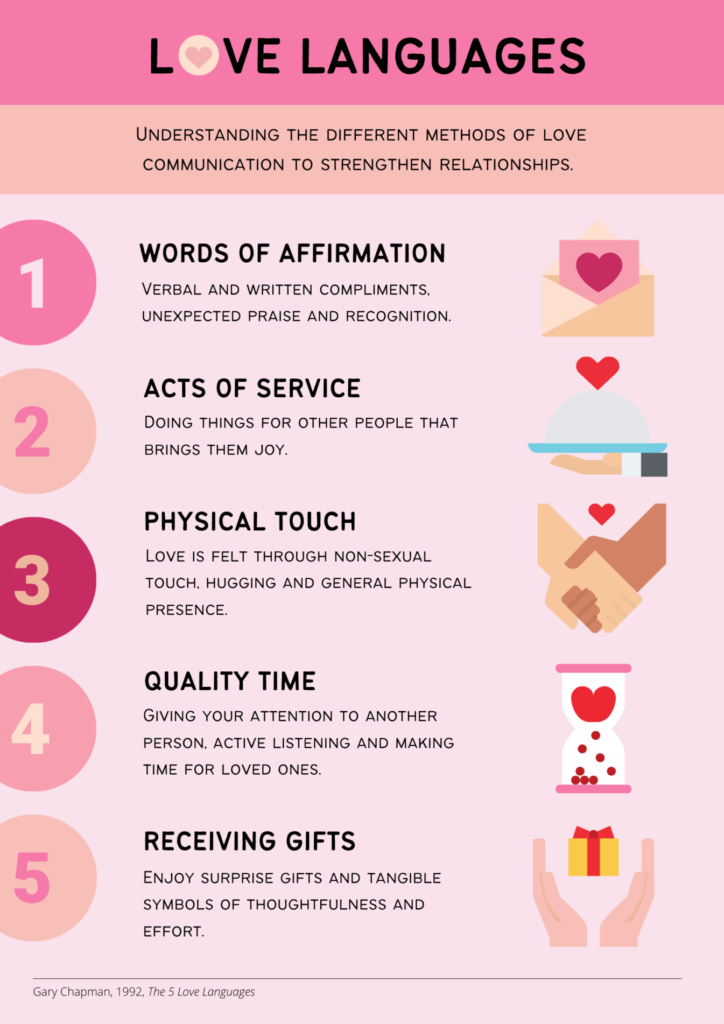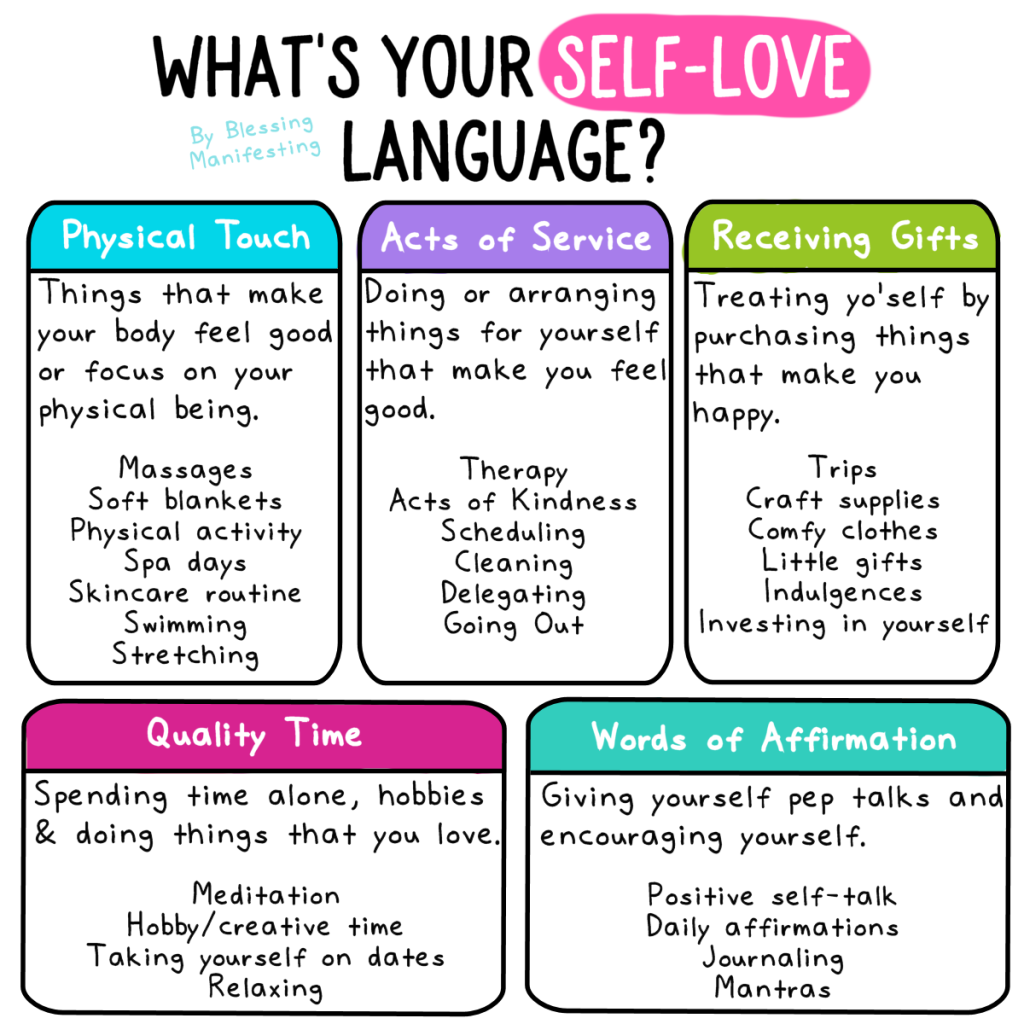Hello dear friends,
How are you and I hope the blogs so far have been useful and practical .
As we enter another month, we have the privilege to reflect on what love is and what it represents in our individual lives.
I remember the definition of love that was popular in the 90s:
“Love is a feeling you feel when you feel a feeling you have never felt before”. The person that came up with this should be dipped in an ice bath. hahahahaha.
I have since learned the hard way and from intentional studying that love is more than a feeling. Perhaps the feeling is the paint on top of a strong foundation of sacrifices, giving, and considerate actions.


Love is more than just a feeling—it’s how we connect, heal, and grow in our relationships. Dr. Gary Chapman’s Five Love Languages—Words of Affirmation, Acts of Service, Receiving Gifts, Quality Time, and Physical Touch—are widely known for helping people understand how they express and receive love.
But did you know that your love language can also play a significant role in your mental health?
By recognizing and integrating love languages into daily interactions, we can foster emotional well-being, build stronger relationships, and create a support system that nurtures our mental health.
In this post, we’ll explore how love languages impact our psychological well-being and how to use them to improve self-care, relationships, and overall mental wellness.
Subscribe to My Newsletter
The Connection
Our mental health thrives on self awareness, recognising and honouring our needs, emotional support, validation, and meaningful connections. Love languages shape how we perceive and receive this support, influencing our emotional resilience, stress levels, and self-worth.
When our primary love language is understood and met, we feel more secure, valued, and emotionally balanced.
Conversely, a lack of love in the language we resonate with can lead to feelings of neglect, loneliness, and frustration.
Here’s how each love language affects mental health and how we can use them to foster emotional well-being:


1. Words of Affirmation: The Power of Positive Communication
People who resonate with Words of Affirmation thrive on verbal expressions of love and encouragement. Compliments, appreciation, and kind words boost their self-esteem and reinforce a sense of belonging.
Mental Health Benefits:
✅ Reduces self-doubt and negative self-talk
✅ Enhances self-esteem and confidence
✅ Provides reassurance during stressful times
How to Apply:
🗣️ Practice daily affirmations to reinforce self-worth
💌 Write encouraging notes to yourself or loved ones
👂 Surround yourself with people who uplift and support you
Encourage people to write you notes and tell you how they feel about your role in their lives.
2. Acts of Service: Love Through Actions
For those who value Acts of Service, actions speak louder than words. Small gestures, like cooking a meal or helping with chores, show love and care.
Mental Health Benefits:
✅ Reduces feelings of overwhelm and stress
✅ Strengthens relationships through thoughtfulness
✅ Promotes a sense of security and trust
How to Apply:
💡 Ask for help when you’re feeling drained—support isn’t weakness
🤝 Do small acts of kindness for yourself, like meal prepping or organizing your space
🔄 Show up for loved ones in practical ways, even if it’s just checking in
3. Receiving Gifts: More Than Just Material Things
Gifts aren’t about materialism—they symbolize thoughtfulness and appreciation. A well-chosen gift can remind someone that they are valued and loved.
Mental Health Benefits:
✅ Boosts feelings of appreciation and connection
✅ Provides tangible reminders of love and support
✅ Can serve as comfort during difficult times
How to Apply:
🎁 Give yourself small, meaningful gifts as a form of self-care, doing a monthly flower subscription is a good one if you like flowers
🖼️ Keep sentimental items that remind you of love and happy memories
💖 Focus on gifts that carry emotional significance rather than monetary value
4. Quality Time: The Healing Power of Presence
Quality Time is about undivided attention and meaningful interactions. Feeling fully seen and heard can deeply impact mental health.
Mental Health Benefits:
✅ Reduces feelings of loneliness and isolation
✅ Strengthens bonds and emotional security
✅ Encourages mindfulness and present-moment awareness
How to Apply:
📵 Disconnect from distractions and be fully present with loved ones
🧘♀️ Spend intentional alone time doing activities that bring you joy
👭 Prioritize quality over quantity in your social interactions
To truly be seen is such a gift.
5. Physical Touch: The Science of Connection
Physical touch releases oxytocin, the “love hormone,” which promotes feelings of security, trust, and relaxation.
Mental Health Benefits:
✅ Reduces stress and anxiety through physical connection
✅ Provides a sense of comfort and grounding
✅ Strengthens bonds and emotional regulation
How to Apply:
🤗 Hug loved ones more often—it’s scientifically proven to boost mood
💆♂️ Engage in activities like massage, stretching, or self-soothing touch
🐾 If you’re not a fan of physical touch, petting an animal can have similar effects


Using Love Languages for Self-Care
Understanding your love language isn’t just about relationships—it’s also a powerful tool for self-care. Here’s how you can use your love language to nurture your mental health:
💙 Words of Affirmation: Practice self-love through positive self-talk and journaling.
💙 Acts of Service: Set up routines and habits that make life easier for yourself.
💙 Receiving Gifts: Invest in items that contribute to your well-being, like a journal, good perfume or home fragrance or cozy blanket.
💙 Quality Time: Schedule time for yourself without distractions.
💙 Physical Touch: Engage in relaxation techniques like deep breathing or weighted blankets.
You can Support My Work
Final Thoughts
Love languages are more than relationship tools—they’re pathways to deeper emotional well-being. By understanding and applying them to both our relationships and self-care, we can cultivate a healthier, more fulfilling life.
Take a moment to reflect: What’s your primary love language? How can you incorporate it into your daily life for better mental health?
Let’s Discuss! What love language resonates most with you, and how does it impact your mental health? Share your thoughts in the comments!
Until next time, stay authentic,
Stay resilient, and continue to honour your needs.
Live wholeheartedly,
Amaka

